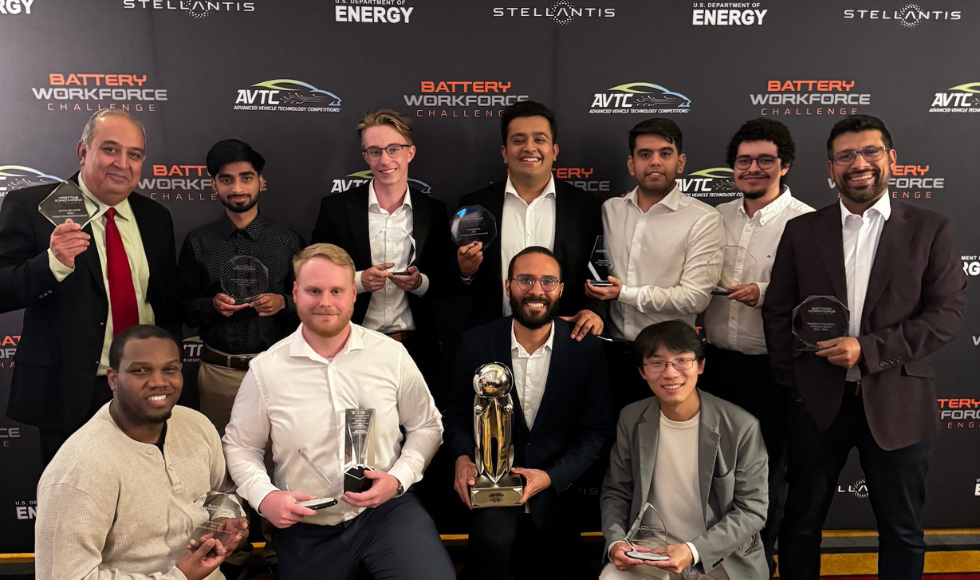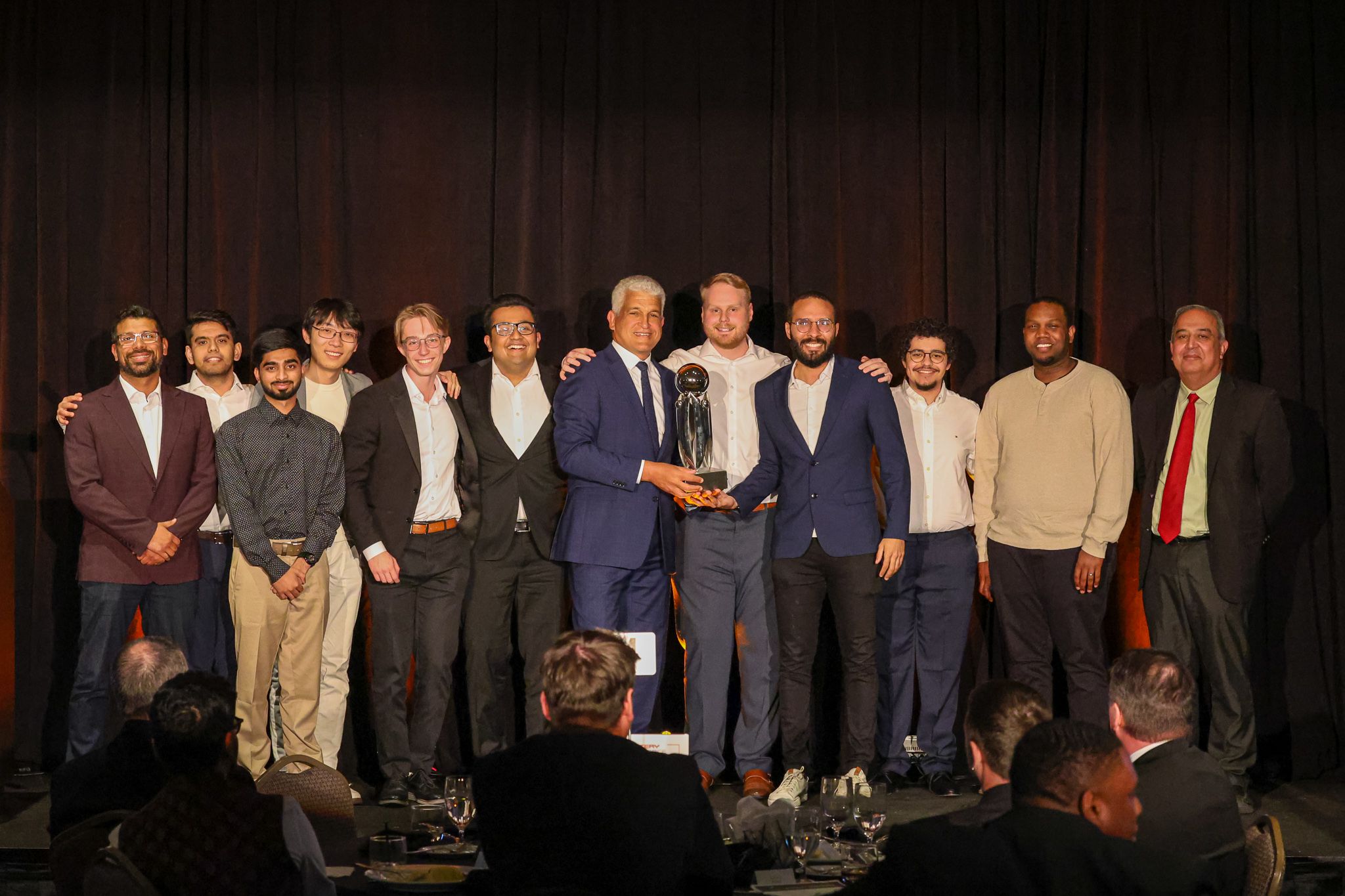McMaster-Mohawk Battery Workforce Challenge team wins first place in international competition

The team was awarded a $25,000 prize and 12 additional awards, including the FW Technical Excellence Award, Vocational Innovation in Battery Award, Expert in Change Control, Technical Excellence in Cell Simulation, Technical Distinction Award, Outstanding Mini Module Award, Collaborative Innovation Award, Expert in DFMEA, BDU Integration and Performance, Excellence in HIL Innovation and the EATON Power Distribution Award.
The McMaster University and Mohawk College team was charged up at the Battery Workforce Challenge Final Year Expo in Indiana when they were named first-place winners of the 2024-2025 season.
The Battery Workforce Challenge is a three-year student competition that kicked off in November 2023. It challenges universities and vocational schools from across North America to design, build, test and integrate an advanced EV battery pack into a Stellantis vehicle. McMaster is one of two Canadian schools selected to participate out of 12 teams from across North America. The Expo marks the end of the second year of the three-year challenge.
“It’s an incredible honour,” says Romulo Vieira, Project Manager of the team and PhD candidate in electrical engineering at McMaster. “Being one of only two Canadian teams in a competition of this magnitude and taking home first place among 12 North American universities — it shows how much dedication, innovation and collaboration went into every part of this project.”

The team was awarded a $25,000 prize and 12 additional awards, including the FW Technical Excellence Award, Vocational Innovation in Battery Award, Expert in Change Control, Technical Excellence in Cell Simulation, Technical Distinction Award, Outstanding Mini Module Award, Collaborative Innovation Award, Expert in DFMEA, BDU Integration and Performance, Excellence in HIL Innovation and the EATON Power Distribution Award.
“Our multidisciplinary team of students, supported by expert faculty from the Faculty of Engineering, demonstrated outstanding innovation, technical excellence, and teamwork to take home the top prize. Their success not only highlights the strength of our engineering programs but also showcases Canada’s leadership in clean energy and electrified transportation” says Saeid Habibi, Faculty Lead for the team and Canada Research Chair at McMaster. “This recognition validates the countless hours our students, staff and faculty have invested into this competition, and the calibre of our state-of-the-art labs and research centres.”
Building a battery
In their second year of competition, the Battery Workforce Challenge team focused heavily on the engineering design, assembly and validation of a working battery module.
Over the course of eight months the group delivered a complete hardware solution, including the battery module, a fully integrated Battery Disconnect Unit (BDU) and the first version of the Battery Management System (BMS) software.
They also demonstrated their management skills in the Project Management Assessment Center and passed all safety validation tests at the Expo.
Equally important, the team developed extensive documentation, simulation models and testing protocols that aligned with industry standards, with one judge commenting that “the Battery Disconnect Unit (BDU) developed by McMaster University met all requirements and was similar to commercial products developed by our experts.”
Getting the opportunity to present their work to the best in the business is a key highlight for students like Mahir Abdul Nasar, a BTech Automation Systems Engineering student and Vehicle Integration Manager on the team.
“Working on this challenge in a cutting-edge facility like the McMaster Automotive Resource Centre and getting feedback from real industry stakeholders on our work, it’s made being a part of this team a learning opportunity of a lifetime,” he says.
“We’re proud of our students and thrilled to have them showcase their exceptional talent on the international stage,” says Heather Sheardown, Dean of the Faculty of Engineering. “We are training the next generation of energy leaders who are at the forefront of engineering a brighter future and creating innovation with impact in the automotive sector.”
Preparing for the finish line
While the team celebrates this year’s win, they have their eyes on the prize as the third and final year of the competition kicks off in fall of 2025.
The next phase of the challenge will take everything the teams have built—from the module and BDU to the software and safety systems—and integrate it into a full vehicle battery pack. The final product gives teams the chance to showcase a system-level design that meets real-world performance safety and manufacturability expectations.
“With our students at the wheel, the future of automotive innovation looks bright at McMaster and in Canada,” says Vieira.
Interested in joining the Battery Workforce Challenge team? Contact battchlg@mcmaster.ca for more information.


